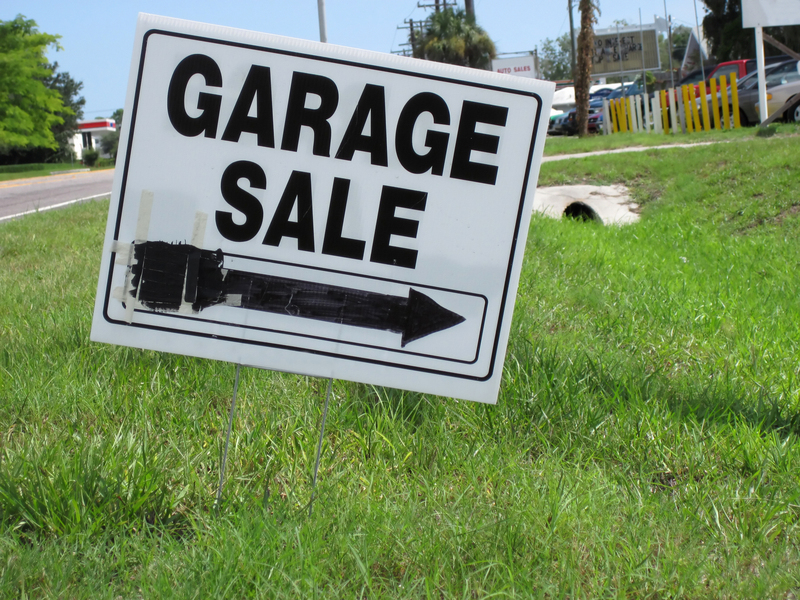Bulky Waste Items: Thrifty Tips to Save Money
Bulky waste items can be a headache when it comes time to dispose of them. Whether it's a worn-out sofa, an old refrigerator, or broken furniture, getting rid of these large objects can be expensive, inconvenient, and confusing. However, with a bit of careful planning, some innovative thinking, and a thrifty mindset, you can turn the challenge of disposing of bulky junk into an opportunity to save money and even help the environment. In this comprehensive guide, we'll explore everything you need to know about bulky waste disposal and reveal smart, *money-saving tips* for homeowners, renters, property managers, and anyone dealing with oversized trash.
What Are Bulky Waste Items?
Bulky waste items, often referred to as oversized or large trash items, are objects that are too large to fit in regular garbage bins. They typically include:
- Furniture (sofas, mattresses, tables, chairs, bookshelves)
- Large Appliances (refrigerators, washing machines, ovens, freezers)
- Rugs and Carpets
- Outdoor Equipment (bbq grills, trampolines, swing sets)
- Mattresses and Bedframes
- Construction Waste (bathtubs, toilets, doors, windows)
- Electronics (large TVs, exercise equipment, computers, printers)
Disposing of these large waste items often goes beyond leaving them at the curb. Municipal bulk collection policies vary, private hauling services can be expensive, and there are local regulations for appliance and electronic waste. So, what's the best and most cost-effective way to tackle bulky waste removal?

Why Is Bulky Waste Disposal So Costly?
The expense of disposing of bulky trash items generally comes down to extra handling, transport, and landfill fees. These items require special pickup, may not fit into standard trucks, and often need extra manpower or equipment. Environmental regulations on electronics and appliances also necessitate specific disposal practices, adding to costs.
Common charges include:
- Special pickup fees by your local waste or sanitation department
- Landfill charges by weight or volume
- Fees from junk removal or hauling services
- Possible additional charges for hazardous components (refrigerants, batteries, chemicals)
But before you shell out your hard-earned cash, consider these thrifty tips to save money on bulky waste disposal.
Thrifty Tips to Save Money on Bulky Waste Disposal
1. Plan Ahead and Combine Pickups
Many municipalities offer limited free large item pickups throughout the year. Check your local schedule and aim to coordinate your bulky waste removal accordingly. Instead of multiple trips or pickups, gather all items at once to maximize your free service and avoid paying additional fees for extra collections.
2. Reuse, Repurpose, or Upcycle
Look at your bulky unwanted items with a creative eye. Many pieces of furniture or appliances can be repaired, painted, or modified for a new life. For example:
- *Old doors* can become headboards, desks, or table tops.
- Broken drawers or cabinets may serve as unique planters or garage organizers.
- A sofa frame can be rebuilt or split into two armchairs.
Repurposing not only saves disposal fees, but also gives you unique furniture pieces and reduces environmental impact.
3. Donate Bulky Items
If your items are still usable, consider donating them to local charities, shelters, or non-profit organizations. Many of these groups accept:
- Gently used furniture and mattresses
- Working kitchen or laundry appliances
- Large toys and playsets
Key benefits:
- No disposal fee
- Items are picked up for free by the charity
- You may receive a charitable tax deduction
4. Sell Your Bulky Waste Items
One person's trash is another's treasure. Use online marketplaces, garage sales, or local classifieds to find takers for your bulky junk--especially if it still works or just needs minor fixing. Some popular platforms include:
- Facebook Marketplace
- Craigslist
- OfferUp & LetGo
- Nextdoor
You might be surprised how quickly large items like refrigerators, couches, or even piles of scrap wood are snatched up by bargain hunters, landlords, or DIY enthusiasts.
5. Use the Free Curb Alert Method
Many communities have a tradition of placing large unwanted goods at the curb with a "Free" sign. It's a simple, effective way to have strangers haul away your items for you. Just remember to check local ordinances for curbside legality, and only leave items outside during permissible times to avoid fines.
6. Split Disposal Costs with Neighbors
Coordinating a community bulky item disposal event or splitting the cost of a rental dumpster among neighbors is a great way to save. Bulk hauling services often offer lower per-item or per-ton rates for larger loads. By sharing fees, everyone lowers their individual expenses.
7. Take Items to the Dump Yourself
If you have a suitable vehicle (truck, van, SUV), transporting your large garbage items directly to the landfill or recycling center will usually be less expensive than professional pickup. You can save even more by sorting your load in advance, as facilities often charge lower fees for sorted recyclables versus mixed waste.
8. Leverage Special Recycling Events
Many communities host periodic free bulky waste drop-off days or recycling drives for appliances, electronics, and even old furniture. Monitor your city or county waste management calendar for these dates. Some retailers (like appliance stores) may also offer free or discounted recycling with purchase of a new item.
9. Hire Responsible Junk Removal Services
For items you simply can't manage yourself, look for reputable and eco-friendly junk removal services. Compare quotes, inquire about recycling or donation partnerships, and select the vendor with the best mix of reviews, eco-practices, and pricing.
Savings Tip: Schedule in advance, bundle items, and avoid emergency or same-day pickups, which usually cost much more.
Understanding Local Regulations Can Save You Money
Laws and fees for bulky refuse disposal vary dramatically between municipalities. In some areas, there are free regular pickups; in others, you'll need to buy a special sticker or pay per item. To avoid unnecessary costs or even fines, always:
- Visit your local government's waste management website
- Check for restrictions on items like electronics, mattresses, and appliances (especially those with refrigerants)
- Learn what counts as "bulky" versus "hazardous" waste--the rules (and pricing) are different
- Understand curbside rules: timing, placement, and limits per event
If you live in an apartment or condo, ask your building management about scheduled pickups or shared disposal programs.
Sustainable and Cost-Effective Disposal: Recycle What You Can
1. Scrap Metal and Appliance Recycling
Many large items contain valuable metals (steel, copper, aluminum) or recoverable parts. Such items include refrigerators, stoves, washing machines, and bed frames. Rather than sending these to the landfill:
- Contact local scrap yards, which may offer cash for your metal waste
- Schedule white goods recycling through municipal programs
- Look for trade-in or recycling rebates from retailers
2. Mattress and Furniture Recycling
Specialized recycling programs exist for mattresses, box springs, and wood furniture. These programs break down old items into components (metal springs, foam, wood, fabric) for reuse. Check with:
- Local mattress recycling programs
- Eco-friendly charities or organizations
- Municipal recycling faculties
Common Bulky Waste Myths That Cost You Money
- Myth 1: You must pay a hauler for every large item
Fact: Many items can be donated, sold, or picked up for free during community events. - Myth 2: You can't recycle furniture or mattresses
Fact: There are many recycling centers and organizations that accept these items. - Myth 3: Bulky junk must be taken to the dump
Fact: Online marketplaces and neighbor networks are eager for free (and even broken) items for repurposing.

Additional Tips to Minimize Future Bulky Waste
- Purchase durable, modular furniture and appliances: Higher quality lasts longer.
- Maintain, repair, and clean large items regularly: Extend their useful life.
- Borrow, share, or rent infrequently used gear: Avoid unnecessary purchases.
- Downsize when furnishing your home: Smaller or multi-use pieces reduce future waste disposal needs.
Conclusion: Save Money and the Planet with Smart Bulky Waste Management
Bulky waste management doesn't have to drain your wallet or fill up the landfill. By reusing, donating, selling, or recycling large unwanted items, you can cut costs and even support your community. Stay informed about local policies, leverage free services and recycling events, and always explore creative ways to repurpose before you commit to paying for removal. When you approach bulky waste with a thrifty, eco-friendly mindset, everyone wins--including your bank account.
Ready to start saving? Review your upcoming cleanout, make a plan using these tips, and enjoy the satisfaction of responsible bulky waste disposal that's both budget- and Earth-friendly.
Key Takeaways:
- Check for free local bulky waste pickups and recycling events
- Donate, sell, or repurpose large unwanted items
- Split disposal costs with neighbors or handle drop-offs yourself
- Always follow local waste regulations and recycling best practices
- Think sustainably to minimize future bulky waste generation
Start applying these thrifty tips today for a cleaner home, a fatter wallet, and a greener community!
